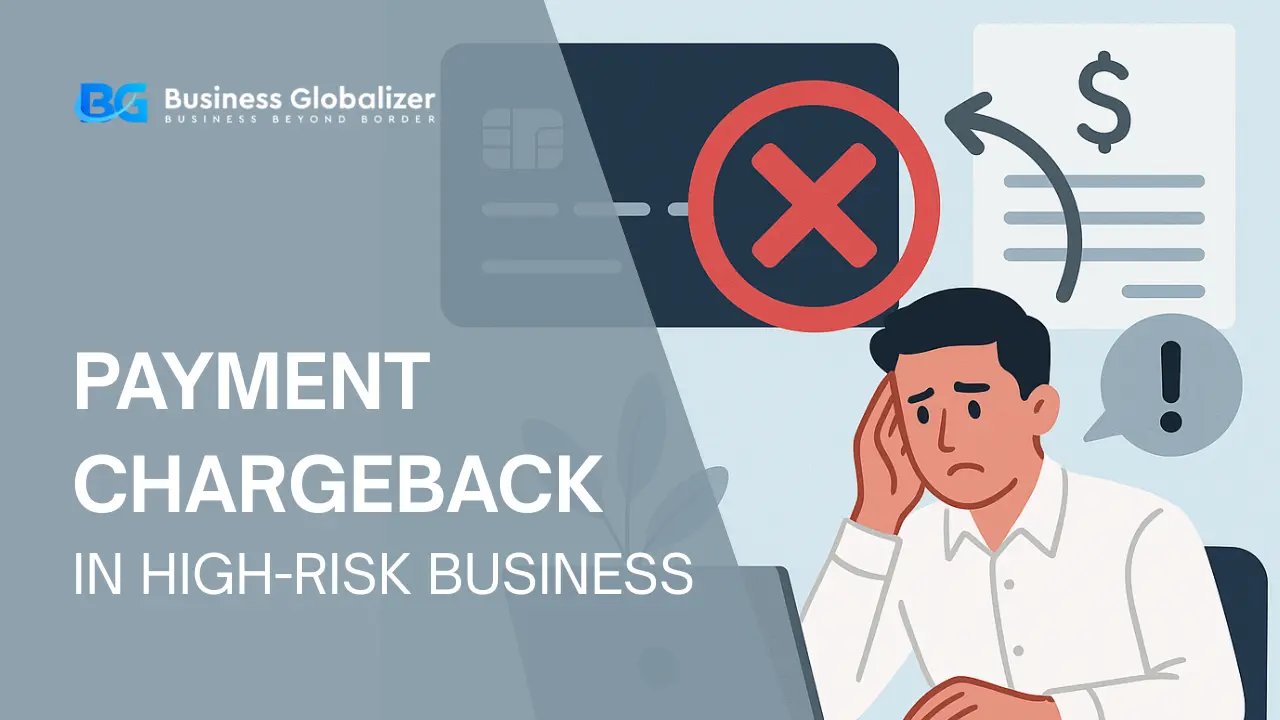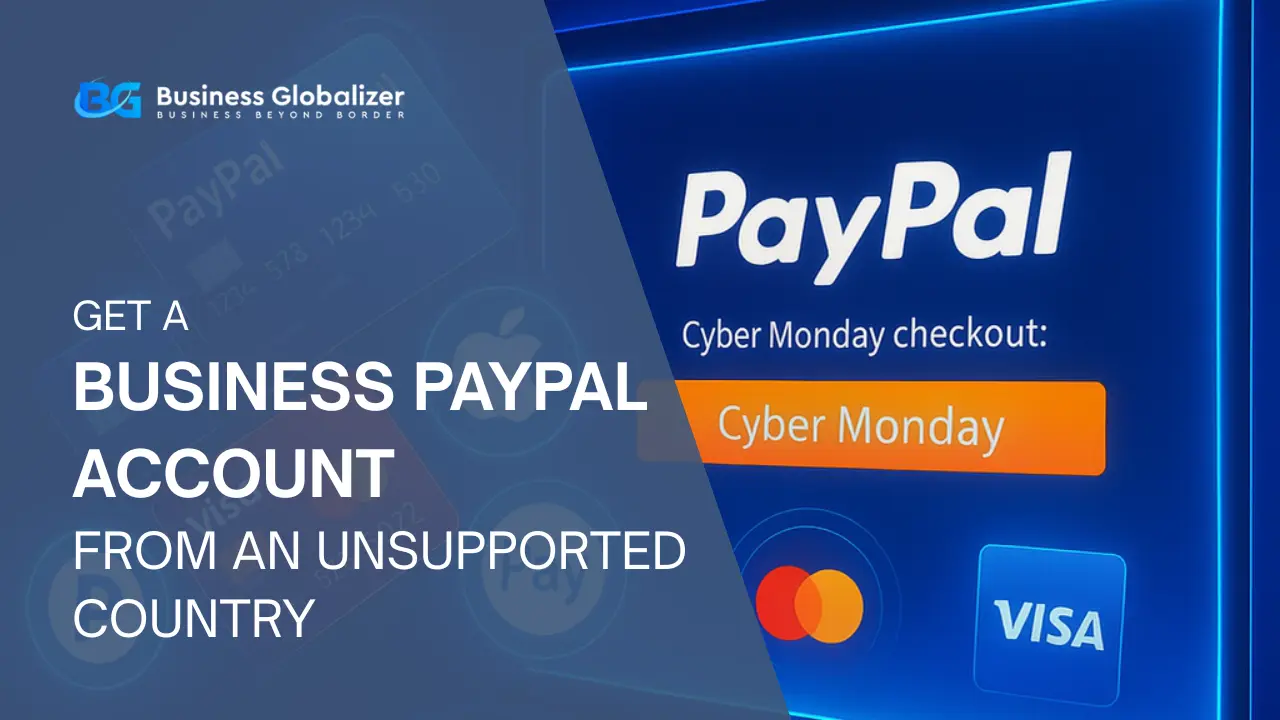One of the biggest challenges I continuously face as an online worker is payment processing. I have had 3 PayPal accounts banned by PayPal since 2012. I have never withdrawn any of my earnings from Medium because Stripe doesn’t work in my country.
A lot of these payment processing challenges have to do with where in the world I come from. Payment gateways like PayPal and Stripe make it very difficult for people in non-US and non-EU countries to transfer money through their platforms.
That’s where company formation agencies like Business Globalizer come in. To access such payment processing facilities, Business Globalizer helps non-residents set up a 100% legal company in the US, UK, and other qualifying jurisdictions.
Company Formation in the US for Non-Residents
To open a US-based payment gateway such as PayPal or Stripe, you need to be a US-recognized legal entity. The best way to do this is to register a US-based company and fulfill all requirements of legal ownership for a non-resident.
Apart from accessing payment gateways, there are many other benefits to registering a company in the US as a non-resident. For example, access to venture capital, a strong brand image, tax advantages, integrating advanced technologies, and access to the US market.
The most popular company structure for non-resident businesses in the USA is an LLC or Limited Liability Company. The process for forming a company in the US varies from state to state. However, there are some general guidelines followed by most states. The procedure for forming an LLC in the US as a non-resident is:
- Choose a unique name for your business.
- Decide the type of activities your company will be dealing in.
- Determine ownership and capitalization. How many shares will each shareholder contribute and own?
- Determine the shareholders, directors, and office bearers.
- Apply for licenses, permits, and certificates related to your business activities. For example, professional services like architecture or medicine will need special licenses.
- Hire a registered agent service.
- Apply for protection for your intellectual properties which may include logos, trademarks, patents, and other types of IPs
- File for incorporation with the state.
- Process your Employer Identification Number (EIN).
- Obtain a physical US mailing address.
- Set up a US bank account.
- If need be, start hiring staff, sourcing support services, and streamlining your supply chain.
PayPal Payment Gateway
Pros of PayPal
PayPal is one of the most popular online payment processing platforms in the world today. US-registered companies enjoy lots of benefits from using PayPal. Some of the benefits and advantages of using PayPal include:
- Ease of Use: PayPal is very easy to set up for individuals and companies. It typically takes just a few minutes to have a US-verified account and start processing outgoing payouts and incoming receivables.
- Wide Global Acceptance: PayPal is available in more than 200 countries and supports over 25 currencies. This gives your business access to a large customer base.
- Security: PayPal algorithms use the highest standards in advanced FinTech encryption and fraud detection technology. This keeps your transactions secure.
- Wide Integration: PayPal can be easily integrated with most e-commerce platforms to enable the online sale of products and services.
- Cryptocurrency Support: PayPal supports financial transfers of cryptocurrency between personal accounts. Account holders can hold, buy, sell, and exchange cryptocurrency through the PayPal platform.
- Low Transaction Fees: PayPal charges relatively low transaction fees compared to most other payment gateways.
Cons of PayPal
- Limited Control: PayPal regularly restricts some businesses on how they can use their accounts. These changes sometimes happen without warning.
- Frozen Accounts: PayPal is well-known for placing holds and freezes on funds and accounts for various reasons. These actions can be disruptive and frustrating for businesses.
- Unresponsive Customer Support: The PayPal customer service team can be difficult to reach. If you have ever had your PayPal account placed on hold or your account limited then you know how frustrating it can be to reach someone to unfreeze or even explain what’s happening.
- Chargebacks: PayPal offers simple ways for buyers to initiate chargebacks, without a responsive way for sellers to dispute the chargebacks. This can lead to losses.
PayPal Fees Structure
PayPal money transfers happen in seconds. To show support for Ukrainians, the platform currently doesn’t charge any fees for transfers to Ukrainian PayPal accounts. For the rest of the world, some of the common PayPal charges are as follows:
- All transactions in the same currency: Free.
- Currency conversion fees: Depends on the currencies involved.
- Currency transfers: 4% of the transfer amount.
- All transactions involving currency conversions: 3% of the transaction.
- PayPal to bank account: 5% plus a minimum international fee of USD 0.99 and a maximum of USD 4.99.
- International donations: 1.5%.
PayPal Customer Service
There are several ways you can reach the PayPal customer service team:
- Contact page for email support: Reach the team at https://www.paypal.com/us/smarthelp/home.
- Self-help for personal accounts: https://www.paypal.com/us/cshelp/personal.
- Live chat: Click on the live chat button on the PayPal website.
- Call center: Dial 00 1 402-935-2050 on your phone.
- PayPal forum: https://www.paypal-community.com/t5/PayPal-Community/ct-p/en.
- Instagram: https://www.instagram.com/PayPal/.
- Facebook: https://www.facebook.com/PayPal.
- Twitter: https://twitter.com/PayPal/.
Security Features
Security and fund safety have always been top priorities for PayPal. Some of the safety features include:
- Password and user PIN.
- One-time PIN (OTP) for two-factor authentication.
- End-to-end-encryption.
- Browser integrity by checking for SSL certificates on websites you buy from, HTTPS connections, and Transport Layer Security (TLS).
- Buyer protection so you can initiate a chargeback up to 180 days after the transaction.
Stripe Payment Gateway
Stripe is the official payment gateway for the Medium Partner Programme. It’s also a global leader in payment processing for e-commerce merchants.
Stripe allows online merchants to process payments made by Visa, MasterCard, Amex, China Union Pay, Diners Club, JCB, Discover, and a host of other internationally accepted credit and debit cards.
Additionally, Stripe has its point-of-sale terminals, which can be extended to accept in-person payments.
Stripe Pros
- Stripe charges a transparent flat rate. There are no setup, monthly subscription, or cancellation fees.
- It supports over 135 types of payment methods and over a dozen currencies.
- Stripe offers a highly customizable checkout process.
- 24/7 customer service via email, live chat, and telephone.
Stripe Cons
- Developer expertise may be needed for operating some API tools.
- There’s limited functionality for in-person payments.
Stripe Fee Structure
- There is no monthly fee for a standard Stripe account. USD 2 per Stripe Express account.
- 2.9% + USD 0.30 per online transaction.
- 2.7% + USD 0.05 per in-person transaction.
- 3.9% + USD 0.30 for international currency conversion transactions.
- USD $59 for Stripe Reader M2
- USD $249 for BBPOS WidePOS E-card reader
Stripe Customer Support
Stripe’s customer support team is highly responsive. You can reach them at:
- Developer chat: https://stripe.com/go/developer-chat
- For press: https://stripe.com/newsroom
- To reach the Stripe sales team for customized products: https://stripe.com/contact/sales
- For FAQs and regular support: https://support.stripe.com/
- Request a phone call in either English or Japanese at https://support.stripe.com/contact
Stripe Security Features
Stripe uses a host of security features, which include:
- HTTPS connections over TLS (SSL) to ensure secure connections
- End-to-end encryption
- Regular audits to check security certificate implementation
- Card numbers are stored in different servers and encrypted with AES-256 decryption keys.
- Ensuring all Stripe account holders are duly registered with original verifiable government-issued documents (Know Your Customer standards) to protect against fraud, money laundering, corruption, and financing of terrorism.
Comparison of PayPal and Stripe Payment Gateway
Both PayPal and Stripe are major global players in the payment processing industry. Though they share many similarities, each platform serves different business needs. These include:
- Stripe has better customization options, making it more suitable for established businesses.
- Stripe has marginally lower fees overall. This includes lower transaction fees and lower chargeback fees.
- Stripe’s customer support team is more reachable and responsive compared to PayPal’s customer support.
- It’s easy to open a PayPal with unverified documents. However, you will have limitations on how much money you can transact. On the other hand, you can make purchases on Stripe without having an account. I would say Stripe overall offers better security. They definitely manage suspicious activity better than PayPal.
- Both platforms integrate well with other online tools. PayPal integrates with WooCommerce, Magento, BigCommerce, Wix, and GoDaddy. Stripe integrates well with WooCommerce, Magento, WordPress, Drupal, PrestaShop, and Shopware, among many others.
- It’s much more difficult to open a Stripe account compared to a PayPal account, especially if you’re from a non-approved country.
Conclusion
Both PayPal and Stripe have a big presence in 2023 global finance and payment processing. PayPal seems to be more suited to individuals and small businesses. Stripe seemed better positioned to serve mid-sized enterprises and big companies.
PayPal charges slightly higher fees but also offers easier account opening from almost anywhere in the world. Stripe, on the other hand, has more stringent rules for account opening and only accepts members from a list of pre-approved countries.
Fortunately, company formation agencies such as Business Globalizer can help you register your company in the US for easier access to either or both payment gateways.






